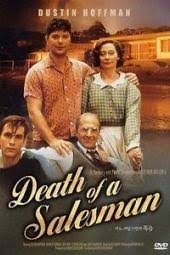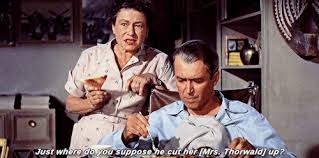Willy Wasn't the Antagonist of "Death of a Salesman" Happy Was.
I think that we can all agree that Willy Loman is far from a role model. He tries to force his son Biff to fulfill a career that he can vicariously live through, he clearly favors Biff, treats his wife like absolute garbage, and disregards his younger son. But that's for another blog post. We're gonna discuss Happy. First, he has a really weird relationship with his brother. I'm not entirely convinced that Arthur Miller had any siblings growing up, because that is not how siblings act. Furthermore, Happy's name is an oxymoron because he is nearly never happy. He always wants more: more people to like him, more women, more compliments (I think you are starting to see the pattern here). The only time he seems to be truly "Happy" is when he is manipulating people or throwing his brother under the bus. He's deplorable. And the worst thing is that he is exactly like his father. But the difference (at least in my opinion) is that Happy is at the age where he could actually do the things he claims he's going to do. Happy could get married, or settle down, or get the top selling job. Willy can't. He's too old and mentally absent to do so. Willy would never have been able to get the job in New York or fix his house, or see that he is not liked, but Happy can. He makes the conscience decision not to. Instead he decides to be a womanizer, liar, and overall bad person. So while I can feel some empathy for Willy as he is rather sick, I cannot feel any for Happy. He is just pathetic.
Also, Biff peaked in high school. Just sayin'.


We focused so much on the Willy/Biff father son relationship that I hadn't even considered Happy's deeper implications in the story. Everyone in the story that happiness is being perceived as successful, when even Happy isn't happy, or even anywhere close. He is what that kind of "happiness" turns you into.
ReplyDelete